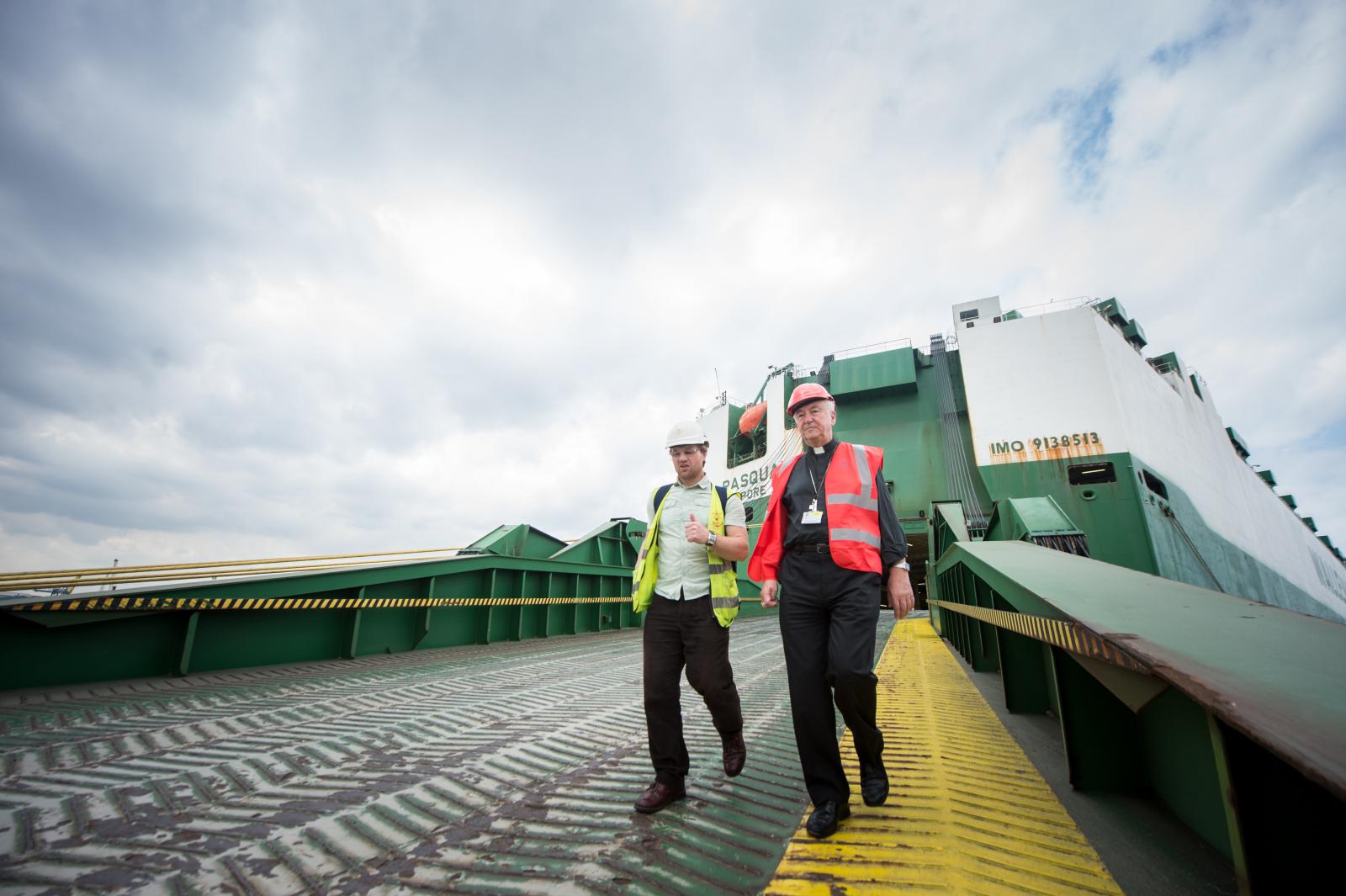Sea Sunday, which is observed on the second Sunday of July each year, falls on 9th July. It highlights the essential work over a million seafarers do throughout the year, drawing attention to their hardships and needs, and offers an opportunity for Christians to pray for them and their families.
Sea Sunday is not reserved for seafarers
In his message for Sea Sunday, Cardinal Michael Czerny, the Prefect of the Dicastery for Promoting Integral Human Development emphasises that it is thanks to these workers that ‘our daily lives become possible and the economy is sustained’.
‘Yet we know hardly anything about them, about their faith, or about how they love and hope,’ the message adds. Many are forced to stay away from their loved ones and don’t even have access to spiritual services during their long months at sea.
‘The complex organisation of our society and a certain propensity to hide inequalities often leaves in the shadows the spiritual treasures and the material needs of humble people,’ makes clear the message.
Sea Sunday is not reserved for seafarers, but ‘calls the attention of every Christian community to those thanks to whom we receive a great part of the goods that nourish us and that we use every day’. Indeed it is estimated that around 90% of imported goods arrive in the UK by ship.
‘To those who are at sea may this resounding, choral message reach you: the Church is near you. Whatever brings you joy and whatever oppresses you is close to our hearts.
We walk together
However, the Church not only has something to give to seafarers, but also to receive from them: ‘We want also to receive your story, your testimonies, your point of view about work, about the economy, about the relations between religions and diverse cultures, about the conditions at sea and on the earth, and about faith’, Cardinal Czerny writes. ‘Your experience can reach and challenge all the members of the Church, and through them, our societies.
‘We are a synodal Church, in which we walk together. We should go forward together, navigating together, without leaving anyone behind, and enriching one another. No one should think that they have nothing to offer.’
Hence the Church’s commitment for this year’s celebration to renew efforts to ‘get closer to each other in an ongoing exchange’ that would make seafarers’ work ‘less far from the daily experience and the faith of all’.
Challenges of life at sea
At one time, seafarers could look forward to time ashore after arriving in a port. But the changes in the shipping industry mean that time ashore is now very short. And some ships never actually dock. Oil tankers, for example, may connect to a pipeline somewhere offshore.
The idea of spending months at sea confined to a ship hundreds or thousands of miles from land and without any way to contact family back home would not appeal to most of us. But for most seafarers this is the reality of their working life.
There’s nothing glamorous about working on a ship. It’s a tough and dangerous job where the hours are often long and the pay low. The deck can be slippery, the sea and the wind can be treacherous, and fires on board and collisions with other vessels are common hazards.
Stella Maris port chaplains offer vital support
Stella Maris port chaplains and volunteer ship visitors are a lifeline for seafarers. In their hard hats and high-vis jackets, they go about their work quietly and without any fuss. When they climb the gangway to a ship the first question they ask the crew is: Can I help you in any way?
They can provide mobile phone top-up cards, internet access, warm clothing in winter, and transport to local shops. They can also arrange for Mass to be said on ships or for seafarers to be blessed, especially important when there has been a death on board.
When Stella Maris ship visitors step aboard, they may become aware of unsafe working conditions. In one instance, the 22-strong crew was under huge mental and physical strain from overwork. One of the seafarers was also concerned that the crew were no longer able to operate the vessel safely as they were all exhausted.
The Stella Maris team immediately contacted the relevant authorities and a vessel detention notice was served that afternoon. Eleven of the crew were repatriated to the Philippines later that month.
Port chaplains and ship visitors understand seafarers’ need to relax. That’s why Charles Stuart, Stella Maris regional port chaplain for the south of England, took seven of the crew of an oil tanker which arrived Fawley in Hampshire for some sightseeing.
‘For the crew who had not seen grass, trees, or people for many weeks, the joy of driving through rural England turned to absolute delight when we caught sight of Stonehenge on the horizon,’ he said.
‘The outing offered a respite from daily routines and a taste of freedom and normality. As we took our leave, we could see the renewed energy and enthusiasm in everyone’s eyes, and knew the memories of this day would last a long time.’
Please pray for the work of Stella Maris port chaplains and visitors, and please support the collection in your parish this Sea Sunday. Donations can also be made online at stellamaris.org.uk/donate.
Photo: Cardinal Vincent with a port chaplain visiting a ship docked in Tilbury (Mazur/CBCEW.org.uk)
